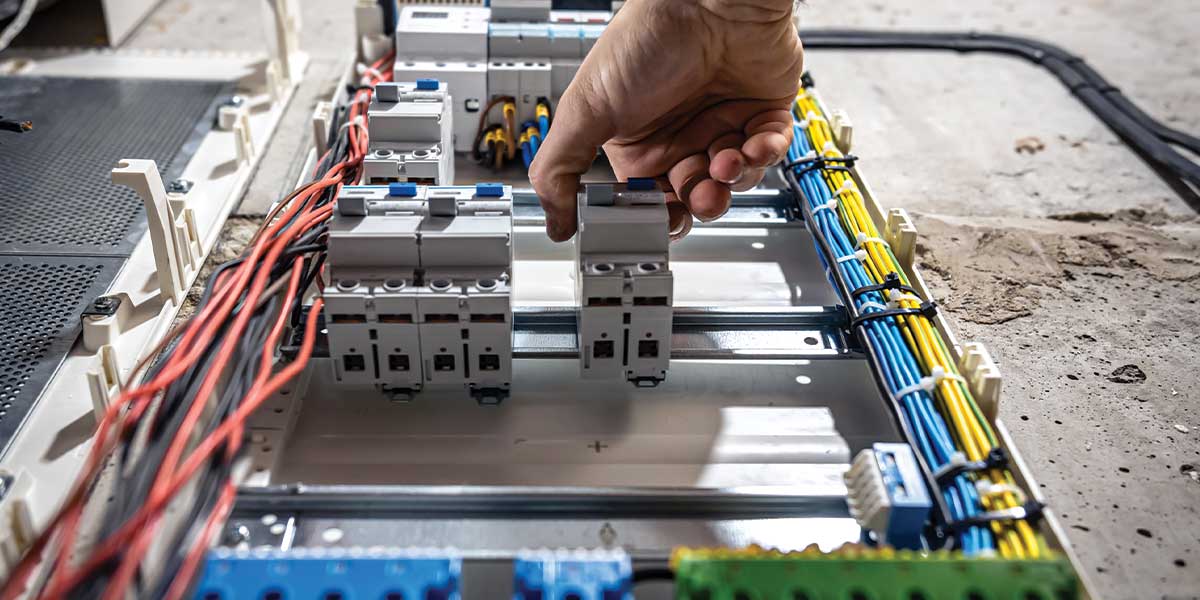At Expert Electric, we know homeowners often have questions about their electrical systems. Whether it’s about flickering lights, tripping breakers, or when to upgrade an electrical panel, it’s normal to feel a little uncertain. After all, electricity is not something you want to “figure out as you go.” One wrong move and you could be left in the dark or worse, create a safety hazard.
That’s why we’ve put together this expanded guide to the 5 Commonly Asked Electrical Questions. These answers are designed to help you better understand your home’s wiring, panels, outlets, and safety measures so you can make informed decisions. Let’s dive into the most common concerns we hear from our customers in British Columbia.
1. What Should You Take Into Consideration When Hiring an Electrician?
Hiring the right electrician is just as important as hiring a reliable mechanic or contractor. A poor job today can turn into a costly repair tomorrow. Here are a few things to consider:
- Licensing & Certification – Always make sure your electrician is licensed and insured. In BC, licensed electricians must follow safety codes set by Technical Safety BC, so you know the work meets provincial standards.
- Experience & Specialization – Not all electricians specialize in the same work. Some focus on residential wiring, while others are experts in commercial or industrial systems.
- Reputation & Reviews – A quick online search can tell you a lot about an electrician’s professionalism and reliability.
- Quotes & Transparency – Avoid vague estimates. A good electrician should provide a clear, itemized breakdown.
- Guarantees & Warranties – A reliable company, like Expert Electric, stands behind its work with guarantees for peace of mind.
Bottom line: Don’t settle for the first name you find on Google. A professional, licensed electrician ensures not just functionality, but safety for your home and family.
Always make sure your electrician is licensed and insured. In BC, licensed electricians must follow safety codes set by Technical Safety BC and CSA Group electrical standards, so you know the work meets national and provincial requirements.
2. What Does It Mean to “Short-Circuit?”
This is one of the most commonly asked electrical questions because it sounds like something out of a sci-fi movie. In reality, it’s a very real (and dangerous) occurrence.
A short circuit happens when electricity strays from its intended path. Normally, current flows along a controlled circuit, powering outlets, lights, and appliances. But when a hot wire touches a neutral or ground wire, whether due to frayed insulation, loose wiring, or damaged appliances, the electricity bypasses its normal route.
Why it matters:
- Short circuits cause sudden surges of current, which can produce sparks, smoke, or even fire.
- Modern breaker panels are designed to “trip” when this happens, cutting power instantly to protect you.
- If you notice repeated breaker trips or a burning smell, it’s time to call an electrician immediately.
Think of it this way: electricity always wants the fastest route home, but when it takes a shortcut, things can get messy.

3. What Is the Difference Between a Fuse and a Breaker?
Fuses and breakers serve the same purpose: to stop the flow of electricity when there’s a problem. But the way they do it is slightly different.
- Fuses – These are small devices that “blow” when they detect an overload. They sacrifice themselves to save your wiring. Once blown, they need to be replaced.
- Circuit Breakers – These are switches inside your electrical panel that “trip” when something’s wrong. Once the issue is resolved, you can reset them by flipping the switch back.
Which is better?
Most modern homes use breakers because they’re easier and more cost-effective to reset. Fuses, however, still appear in older homes and are safe if properly rate, but they’re becoming increasingly outdated.
4. What Are GFCI Outlets?
If you’ve ever noticed an outlet with two small buttons labeled “Test” and “Reset,” that’s a GFCI outlet. GFCI stands for Ground Fault Circuit Interrupter, and its job is to keep you from getting shocked.
Here’s how it works:
-
A GFCI monitors the flow of electricity in real time.
-
If it senses that electricity is escaping (for example, into water or a person), it shuts off power in milliseconds.
-
These outlets are required in moisture-prone areas: bathrooms, kitchens, garages, basements, and outdoors.
If you push the “Test” button and it doesn’t trip or it won’t reset, call an electrician to replace it. This is one small device that can literally save your life.
5. Why Do My Lights Flicker?
Flickering lights aren’t just annoying; they can signal a deeper issue.
Common causes include:
-
Loose light bulbs or fixtures.
-
Old or outdated wiring.
-
Overloaded circuits (for example, when you run the microwave, fridge, and toaster at once).
-
Voltage fluctuations from your power supply.
If flickering is isolated to one light, it’s probably minor. But if your entire home is affected, or you see dimming when large appliances start, it’s time to have your electrical system inspected. Ignoring flickers today could mean expensive repairs tomorrow.
6. How Do I Know If My Electrical Panel Is Unsafe?
Your electrical panel is the heart of your home’s electrical system. If it’s outdated or faulty, it’s like running a marathon with a weak heart, eventually, it will fail.
Warning signs of an unsafe panel:
- Breakers trip frequently.
- You smell burning or see scorch marks near the panel.
- The panel is warm to the touch.
- The brand is known for recalls (e.g., Federal Pacific Electric).
- It’s more than 20–25 years old.
Panels age just like anything else. If your panel is over two decades old, call Expert Electric for a safety inspection. We can tell you if it’s time for an upgrade.

FAQs – More Common Electrical Questions
Beyond the five main concerns above, homeowners often ask about other everyday electrical issues. Here are a few quick answers:
Q: Can I do my own electrical repairs?
A: No. In BC, electrical work requires permits and inspections. DIY wiring can void insurance and create serious safety hazards. Always hire a licensed electrician.
Q: How often should I get my home’s electrical inspected?
A: Every 3–5 years, or sooner if you’ve recently bought a home, renovated, or added major appliances.
Q: Why do outlets spark when I plug things in?
A: A small spark is normal, but large sparks, burning smells, or heat from outlets are red flags. Call an electrician immediately.
Q: Do I need surge protection in my home?
A: Yes, especially for expensive electronics like TVs, computers, and gaming systems. Whole-home surge protectors are a great investment.
Q: What’s the lifespan of residential wiring?
A: Wiring can last decades, but insulation degrades. Homes built before the 1970s may need rewiring for safety and efficiency.
Final Thought
Electricity powers our lives, but it can also put us at risk if neglected. The 5 Commonly Asked Electrical Questions above highlight just a fraction of the issues homeowners face every day. Whether it’s flickering lights, outdated panels, or the mystery of short circuits, the safest answer is always the same: call a licensed electrician.
At Expert Electric, our team has proudly served homeowners across the Lower Mainland and beyond for decades. We prioritize safety, efficiency, and customer peace of mind. When in doubt, don’t guess—get expert advice.
Contact Expert Electric
Need answers to your electrical questions or professional help with your next project? We’re here for you.
-
📞 Call Us: 604-681-8338
-
📧 Email Us: info@expertelectric.ca
Whether you need a quick repair, a panel upgrade, or new lighting installed, we’re just a call away.


